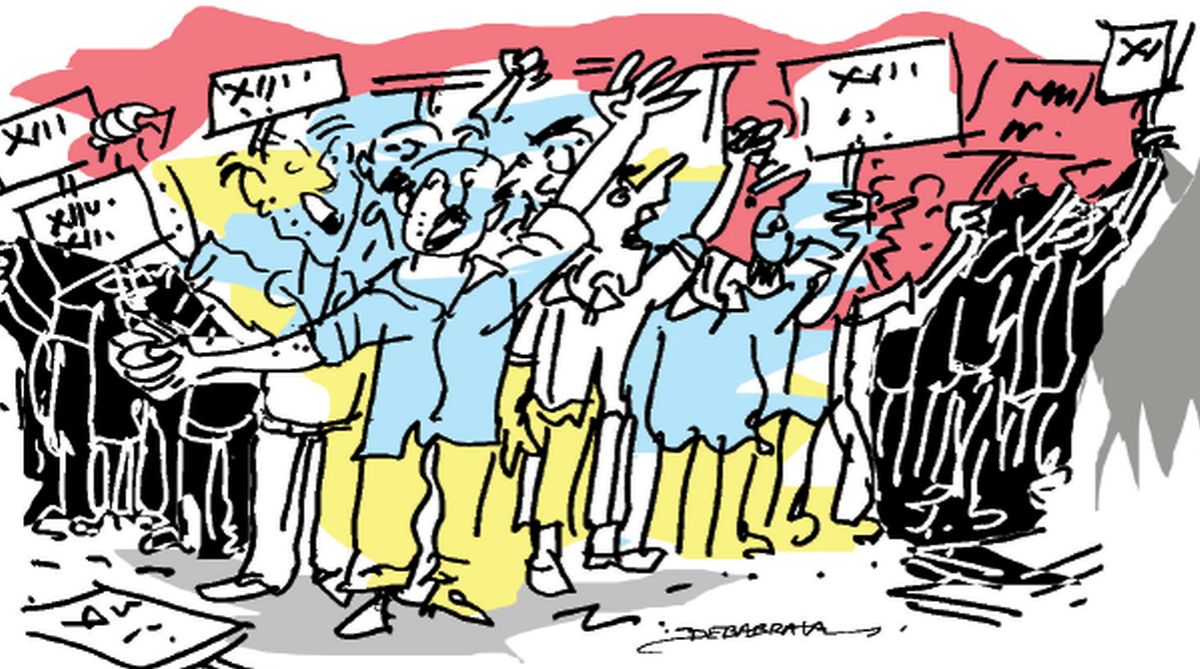Barely a month after I joined the plant as an intern, the workers went on a strike. It was an experience that has stayed with me.
In the mill section two workers had bad accidents, with irreversible damage to their arms. Mill hands said accidents had happened earlier without any corrective action.
When workers complained to the foreman, they received a snide reply, and when the shop representative of the union remonstrated, he was asked to shut up or go home. In short order, other workers joined the aggrieved mill hands. When they did not hear a reassuring word from the personnel manager, and the plant superintendent would not meet them, the die was cast. A strike was on.
Things turned rapidly worse from that point. The managers tried to get in some outside workers to help with maintenance chores while the plant lay idle; the workers demonstrating outside roughed them up. When a couple of foremen warned the workers that they were overstepping the limit, they too were pushed around, and someone spat on them. The plant supervisors called the police and hired more security guards. The workers, taking the show of force as a challenge, turned even more menacing.
As a junior intern, just out of college, I had no role to play and was told to stay away. But I lived near the plant and the temptation was strong to come around and see what was happening. Day after day I saw office cars, with a police guard, ferrying engineers to factory gates, and running the gauntlet of workers with placards, gesturing, menacing, shouting insults. Some of the staff and security guards, in turn, made obscene gestures at the workers.
A company spokesman came out, ringed by guards, and read out a blustering statement to a group of waiting reporters. Union activists too gave the press a list of their demands and spoke of their grievances. The reporters wanted to speak to the union president, but he was in another town where his wife was to undergo a major surgery.
By the end of the second week there seemed little hope of a quick breakthrough. With both sides dug in, people expected more violence to follow. I went down Monday morning to see if anything had changed. The striking workers were shouting slogans as usual, but they stopped suddenly. I looked back to see a small, frail-looking elderly man walking slowly toward the factory gate.
Instantly, there was sustained, respectful silence all around. The workers and guards all silently acknowledged the presence of the man, who in turn acknowledged them with a brief gesture of his hand and marched straight to the gate. The gatekeepers, without a moment’s hesitation, let him in and stood aside for him to walk on toward the management office. “The union president,” somebody whispered in my ear.
I stood amazed at the electric change in the atmosphere. People stood petrified in their place, as if expecting something extraordinary to happen. It did. In barely twenty minutes, the old man emerged again. Walking with the plant superintendent, he took ten steps past the gate and faced the milling crowd outside.
“We have reached an agreement,” he spoke clearly but softly. “The workers who have been hurt will receive the best treatment and compensation. The staff who have been unresponsive will be disciplined. The engineers will look into the accidents and make sure they don’t happen again.”
He paused for a second, then resumed, “I will personally deal with the workers who have acted improperly. The police will leave tonight. Tomorrow we will start work with the morning shift. We all need to work and behave well with our colleagues.”
The stunned silence seemed to last an eternity. Nobody said a word. Everybody went home like chastised schoolboys, in peace and quiet. The strike was over.
The writer is a Washington-based international development advisor and had worked with the World Bank. He can be reached at mnandy@gmail.com











